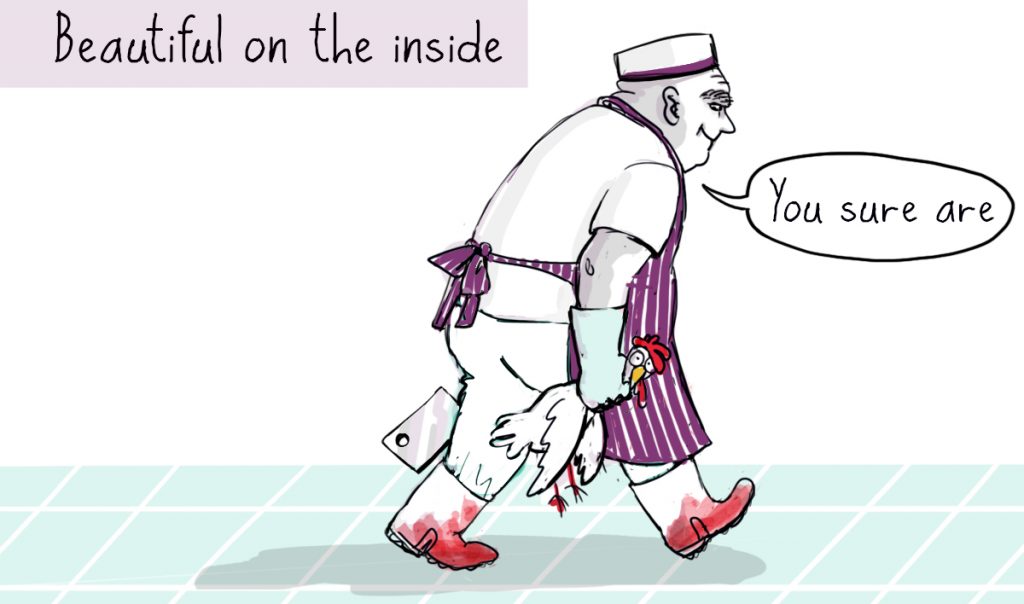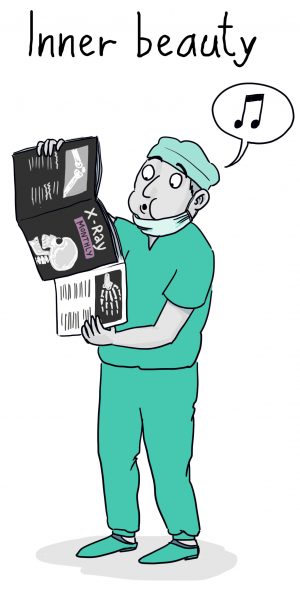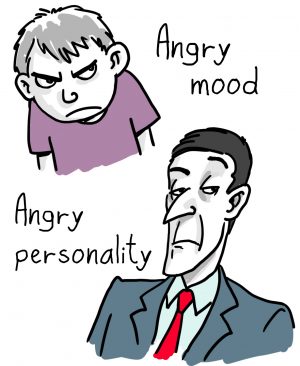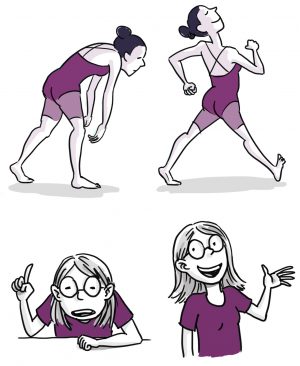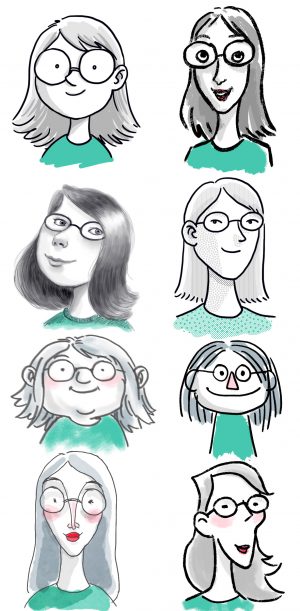Inside out
(Almost) everybody agrees: beauty is what’s on the inside. That’s bad news for a character designer. I have to make do with the outside. But how do I show whether somebody* is wise, mischievous or sympathetic?* This character can be anything: a human being, an animal, a plant or an alien. It even may be an object I want to beathe life into. For convenience
Mood or personality
One can be in an angry mood, or have an angry personality. There is a difference. That’s why I have to consider every detail. Somebody having a fit of anger may clench his fists, stamp his feet, look sour, and have an thundercloud hanging over his head. But somebody with an angry disposition probably has a permanent frown and deep wrinkles from his nostrils to the corners of his mouth. Those were etched in over the years.Posture
Posture is at least as important as the facial expression. Because, even if you don’t see the face, the rest of the body speaks volumes. Whether a character stumbles dejectedly and defeated to the horizon, or sets out to new vistas full of zest and hope, is something you will recognize immediately!That’s why I always ask myself: What is my character doing? How does he carry himself? Is he explaining something? Does he like what he does? Does he have energy?
Recognizability
And last but not least: the character must be recognizable. For instance because you want him to represent an existing person or a company. For (make no mistake) companies have personalities too, so you can depict them as a character.When I am working on a company, a team or a department, I start with a good think. Does my character wear a suit and tie? And is his tie neatly knotted or is it crooked? Or is he wearing a t-shirt and jeans? Is his hair perfectly coiffed or nonchalant? Is he resolute? Sympathetic?
And as a finishing touch I can add the colours of the house style. Then the picture is perfect.

